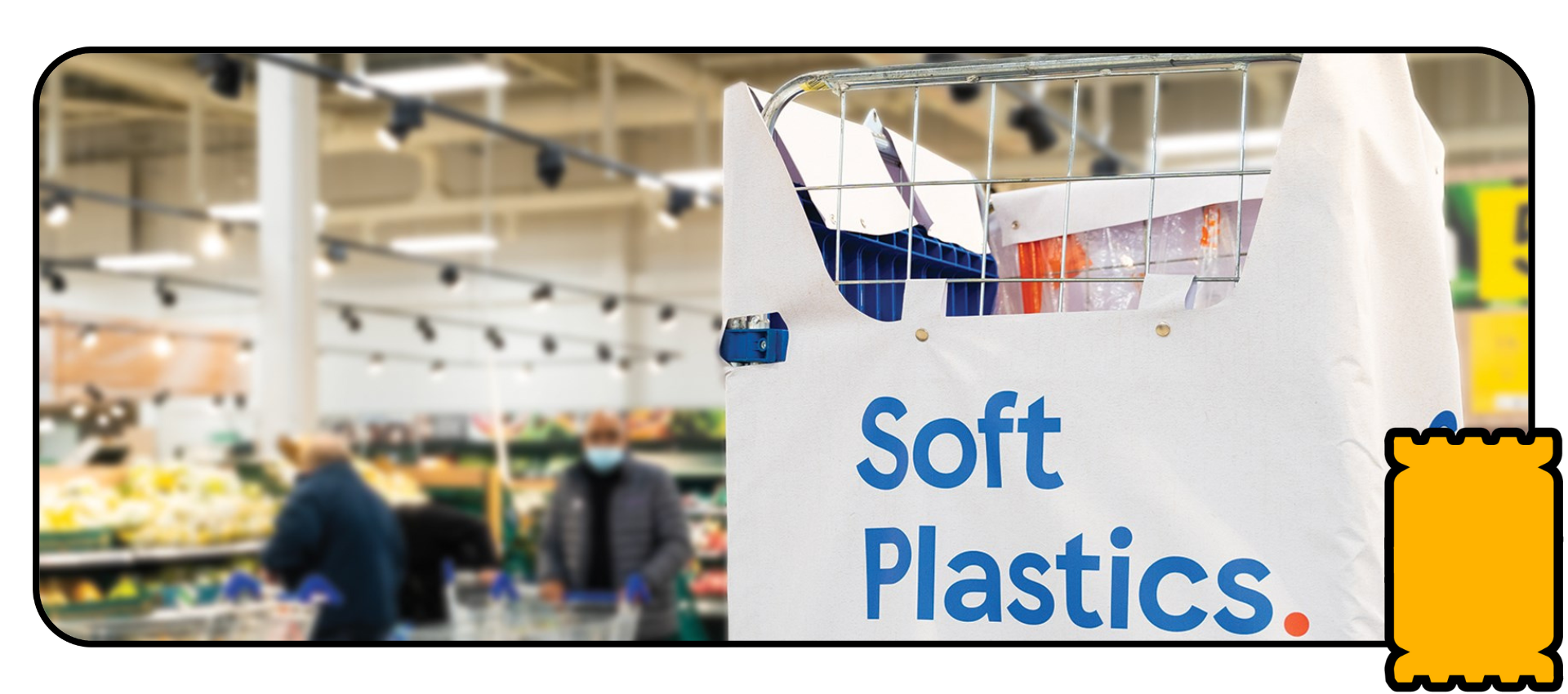Soft plastic recycling: Don't believe the hype
Soft plastic take-back schemes are picking up momentum in UK supermarkets with thousands of stores now offering their customers the opportunity to return their bread bags, crisp packets and salad bags for “recycling”. We get lots of emails and comments from members of our community to tell us that they diligently set aside their bags and wraps at home to pop in the crate next time they’re doing a big shop.
But have you ever wondered what happens to all the soft plastic you drop off at the supermarket? Where does it go? Does it actually get recycled?
Next time you’re at the supermarket, ask a member of staff these questions. I am pretty sure that they won’t be able to give you a straight answer.
The thing is, there are many problems with supermarket soft plastic take-back schemes.
Hardly any local councils collect soft plastic (13% in the UK, and even that has its limitations) and that’s because it is firstly, hard to recycle – it is low grade and low quality compared to more valuable hard plastic products such as water bottles or milk bottles. Secondly, there is a distinct lack of infrastructure in the UK – there are only a few specialist facilities equipped to deal with soft plastic. Thirdly, and as a result, there is not a market for soft plastic recycled materials. The quality is lower than hard plastic recycled materials AND fresh virgin plastic. It doesn’t make economic sense.
Add these reasons to the stark fact that last year’s The Big Plastic Count revealed that of 6.5 million pieces of plastic thrown away in one week by 100,000 participating households, 57% was soft plastic packaging. How will supermarkets alone be responsible for turning all those crisp packets back into crisp packets?
A Bloomberg investigation last year followed two plastic bags that were placed into Tesco’s soft plastic take-back box by using tracking devices. One ended up at an incinerator in Poland, the other at an industrial estate in Turkey. And they won’t be the only bags to end up outside the UK. The Bloomberg documentary is less than 13 minutes. Watch it!
These schemes are therefore creating a false sense of security amongst the public. It’s quite simply a greenwash tactic, and a dangerous one at that. There is a lack of transparency of what is happening to this stuff, and whilst in some cases, the soft plastic may be turned into drainpipes or shelving (although this is downcycling not recycling), a LOT of the items will follow the same path as those in the Bloomberg investigation. Take-back schemes are just a means to maintain the status quo, making it less likely for supermarkets to make real steps to reduce their plastic footprint.
By expanding the roll-out of the take-back scheme, supermarkets are blindly investing in completely the wrong model. Firstly, they should be focused on accelerating the elimination of hard-to-recycle and unnecessary soft plastic across all their product categories. Reduction is the only way to prevent the plastic crisis getting worse. Our Choose Loose campaign proposes that plastic packaging is eliminated from just five fruit & veg products. By doing so, we estimate that 1.7billion pieces of plastic could be prevented from being thrown away.
And reduction doesn’t just necessarily mean elimination. Reuse and refill schemes – of which there have been a number of trials and pilots over the last few years – present a massive opportunity to meet those voluntary elimination commitments developed by supermarkets through the Plastics Pact.
Supermarkets are not rising to meet the challenge. And the longer they wait, the more costly it will be – both to the environment and their bottom line.

